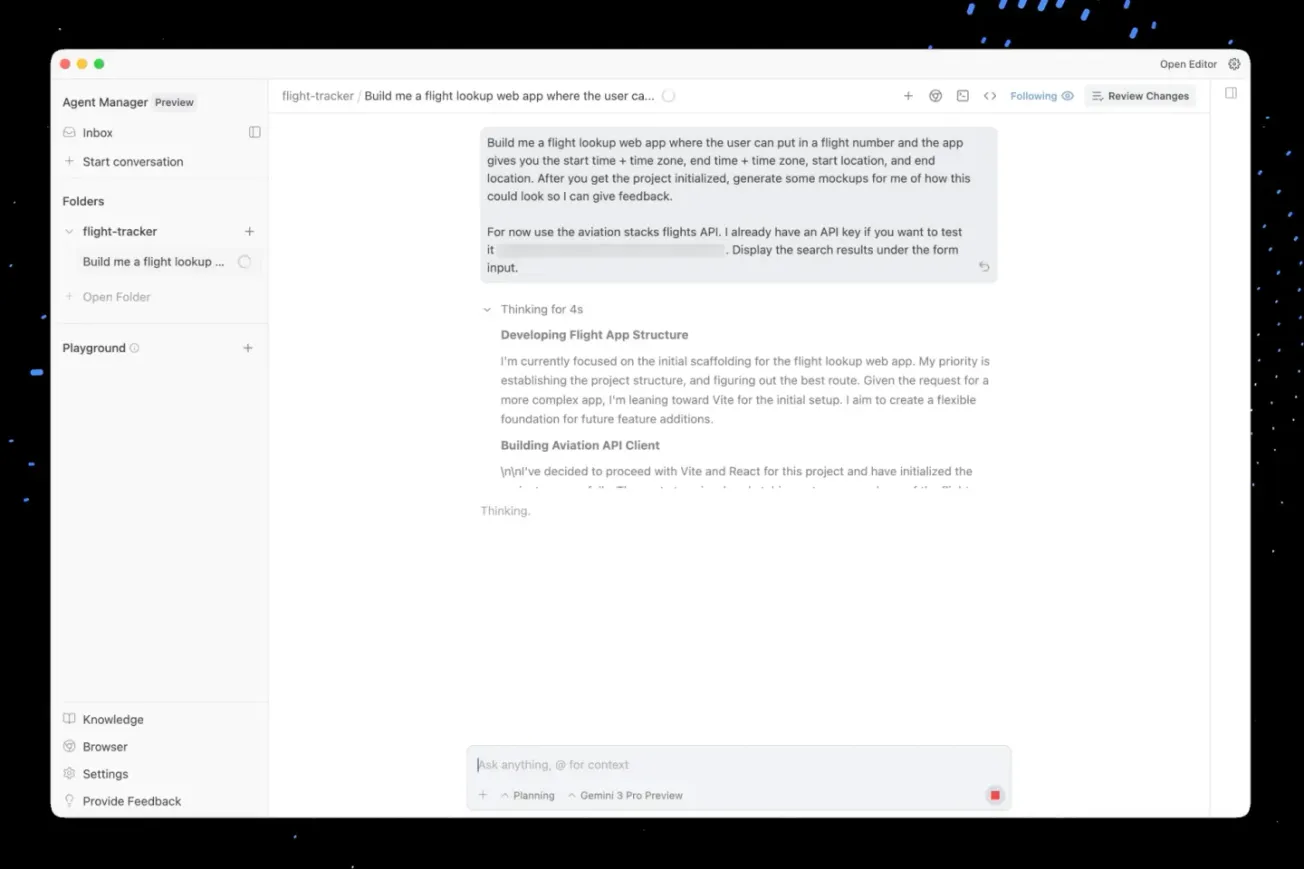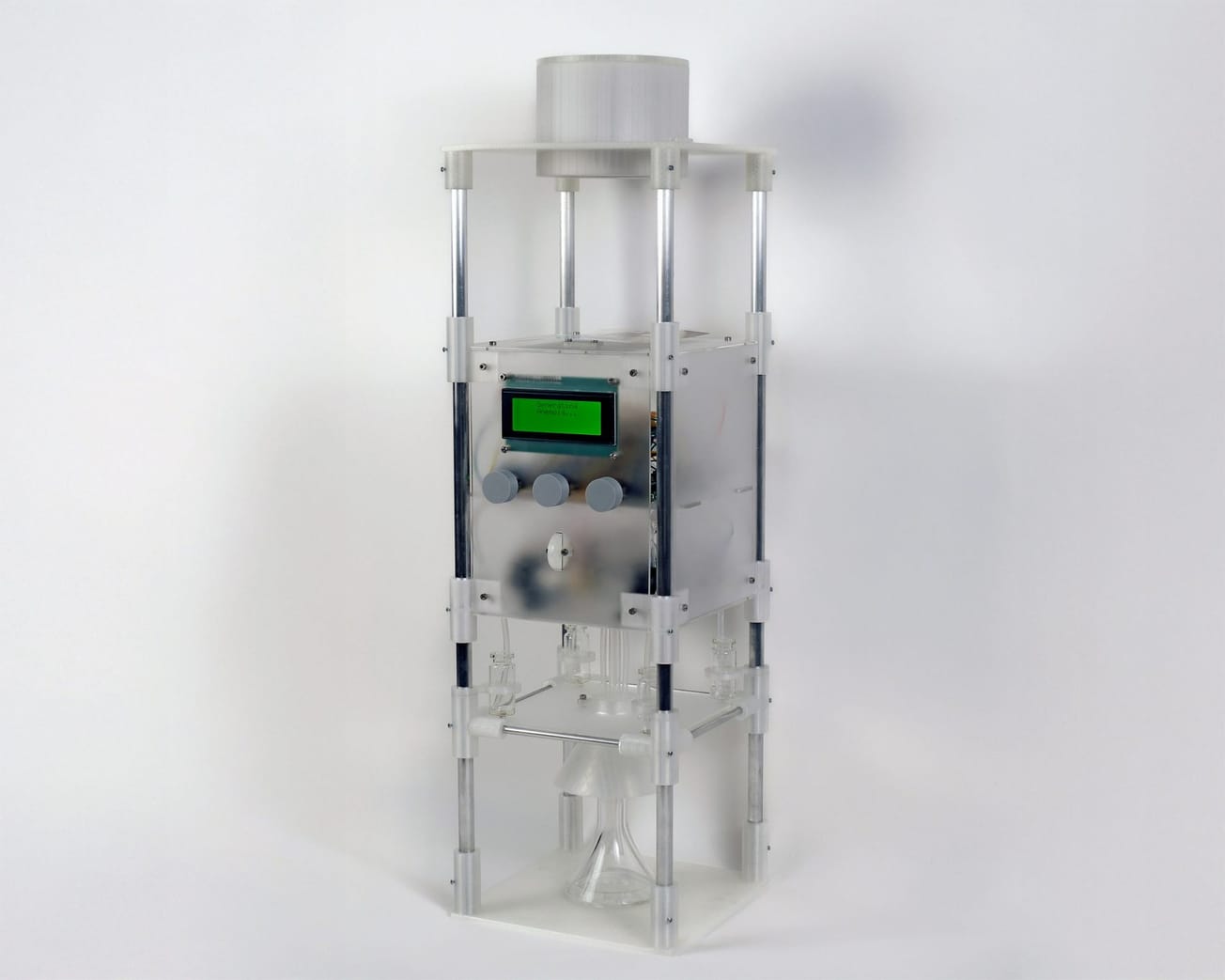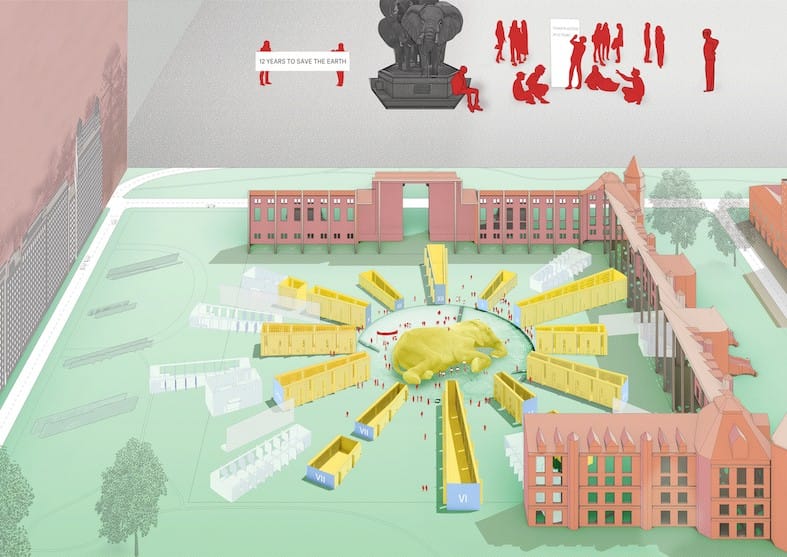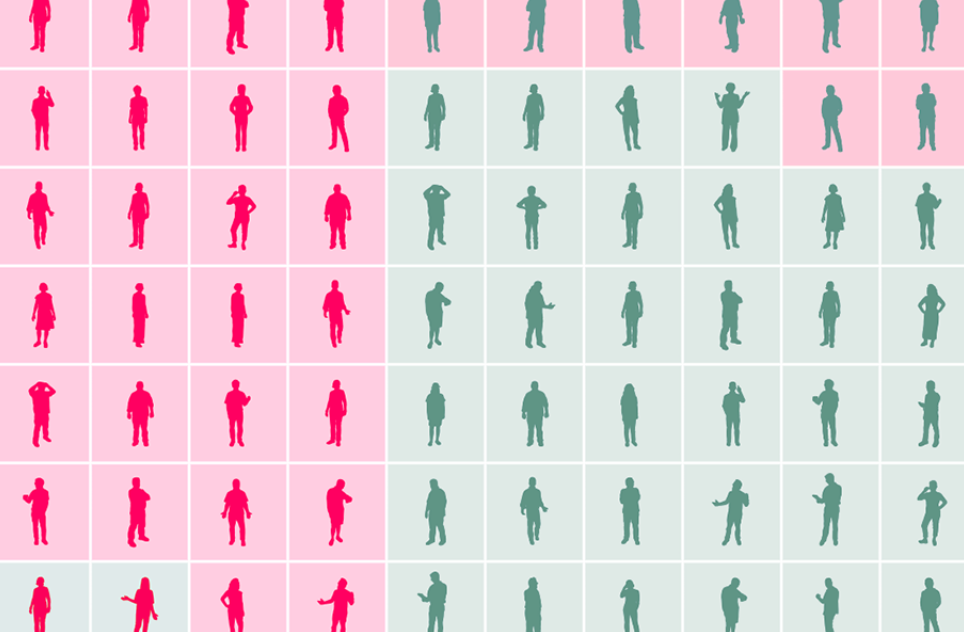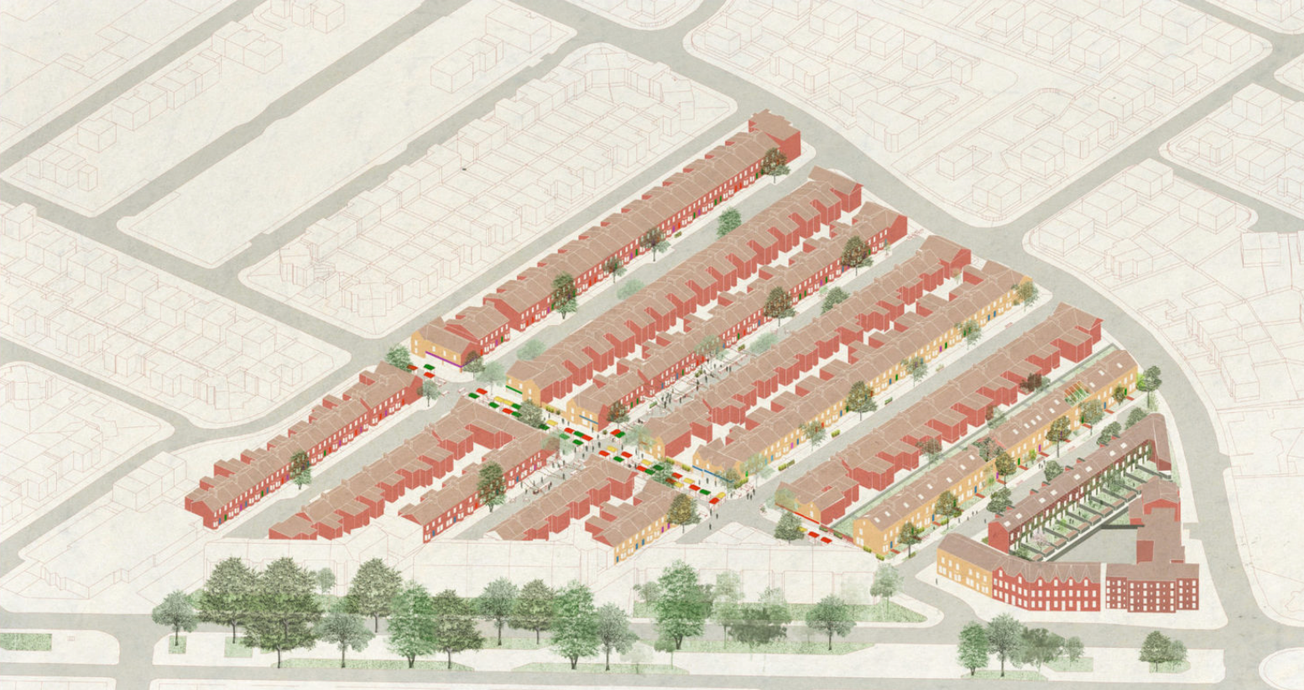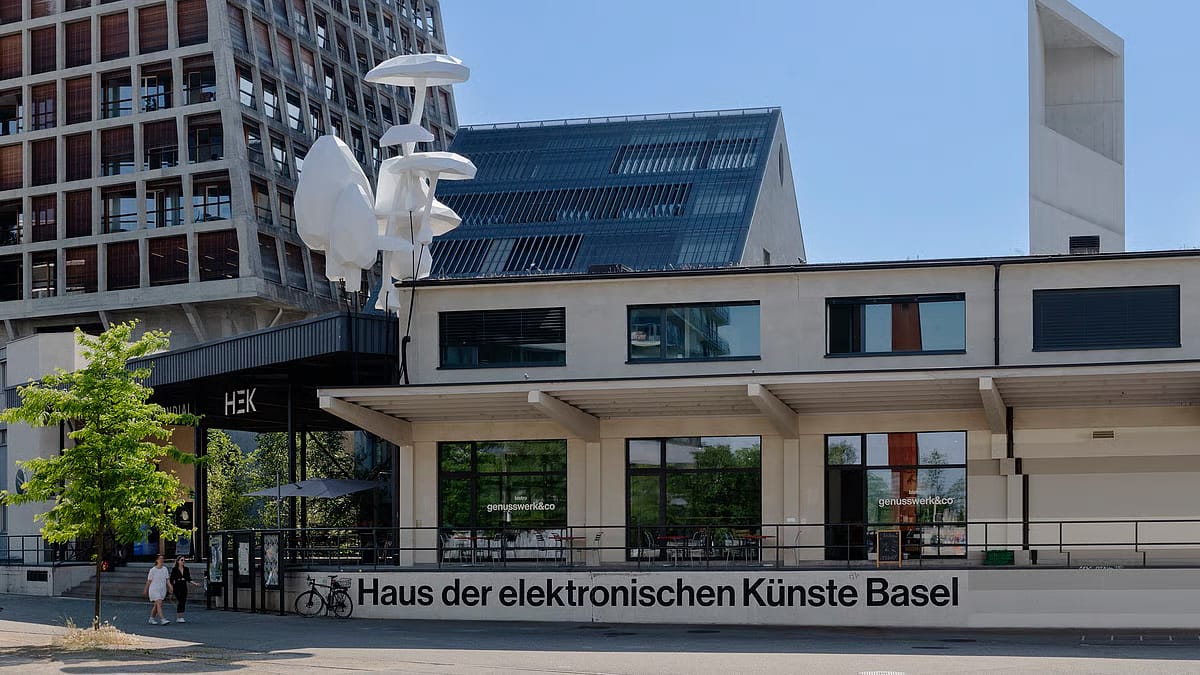Google has introduced Antigravity, a new development environment built around the capabilities of Gemini 3. Rather than functioning as a traditional code assistant, Antigravity positions autonomous agents as active participants in the development process—capable of writing code, running terminals, navigating a browser, and generating verification artifacts within a single interface.
The platform offers two working modes. Editor View mirrors a conventional IDE but adds a persistent agent sidebar for planning and task execution. Manager View expands this into a coordination layer where developers can supervise multiple agents working across different workspaces. The system is designed for structured delegation: users outline a task, agents carry it out in stages, and Antigravity records the process through task lists, screenshots, and browser captures.
While Gemini 3 is the default engine, Antigravity also supports selected third-party and open-source models, signaling Google’s intent to position the environment as a flexible platform rather than a model-locked tool. Antigravity launches in public preview with generous rate limits, giving developers early access while allowing Google to evaluate how autonomous agents perform in real-world conditions. Early feedback will likely influence how agent autonomy evolves.
For now, Antigravity’s impact is practical. It accelerates setup tasks, testing routines, documentation lookup, and iterative coding. Its agent-first structure introduces a more traceable and coordinated approach to AI-assisted development than previous generations of coding assistants.

